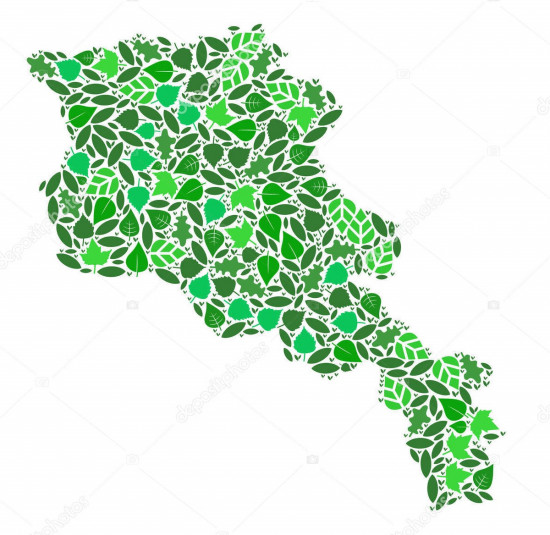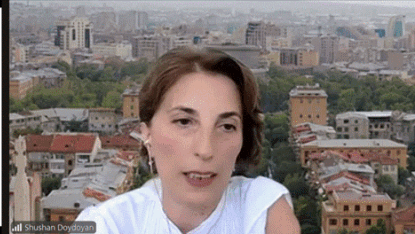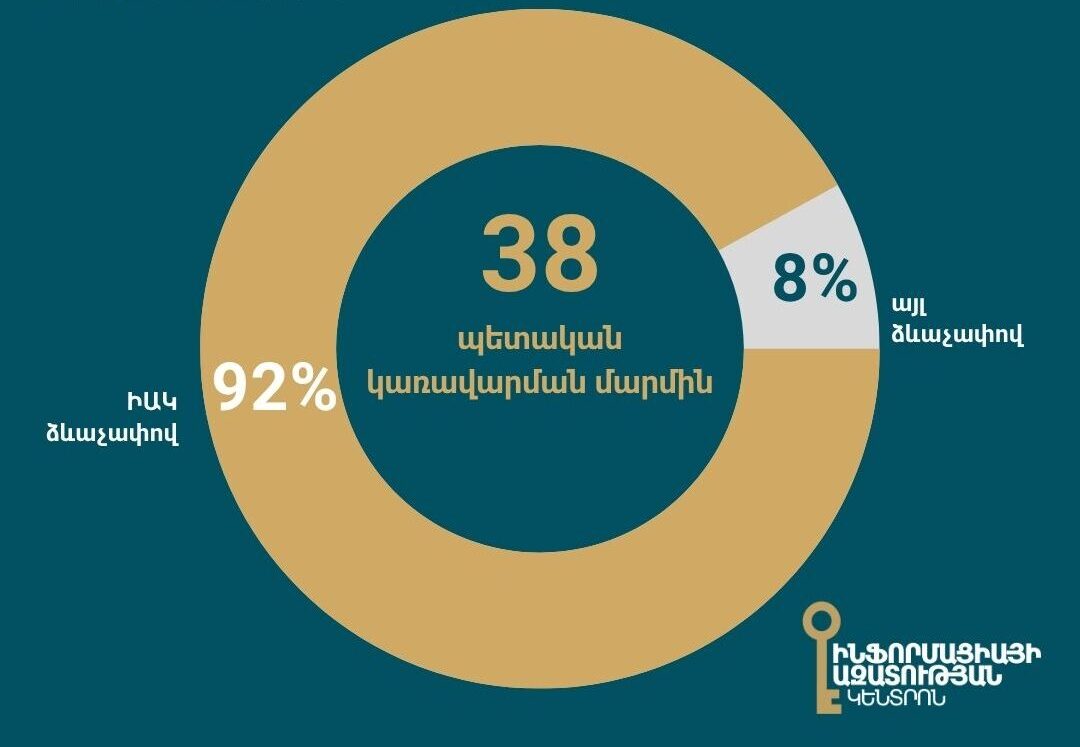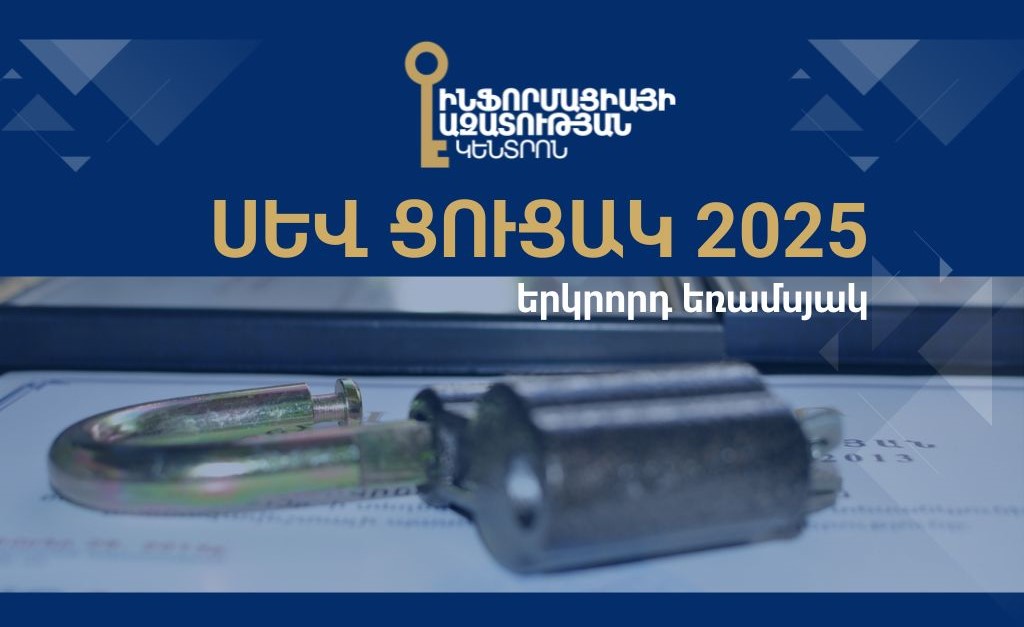OPINION ON FOI DRAFT
By Freedom of Information center of Armenia (FOICA)
The draft on making additions to the Freedom of Information Law restricts the right of the public on access to information and to participate in the decision-making process of environment. On April 3, the RA Human Rights Defender published a negative opinion on this Project. Another comprehensive opinion of the Human Rights Defender was released on April 15, 2020 and submitted to the RA Parliament. Reporters Without Borders international organization announced on April 2 that the initiative violates the principle of transparency of the RA Government.
On April 6, the Armenian National Platform of the Eastern Partnership Civil Society Forum, which unites more than 230 Armenian CSOs, as well as tens of other non-governmental organizations, issued a statement urging the Armenian government to immediately repeal the Freedom of Information Act draft and not to submit it to the National Assembly for further consideration, as it does not comply with national legislation and international regulations on freedom of information.
Our requirements are based on the following arguments:
- According to the Aarhus Convention, the provision of information may be denied only by the State Authority (see Article 2 «2 of the Convention), whereas in the draft FOI law these powers apply to all information holders who are covered by Article 3 of the current Law on Freedom of Information (paragraph 4). In other words, local self-government bodies and private organizations with public functions may also have the opportunity to reject environmental information requests.
- Clause 4 separated from the context of the Convention shall be presented in the substantiation of the draft. “A request for information on the environment may be rejected if the provision of such information has a negative impact on the environment to which that information relates, for example, to breeding rare species.” It should be noted that the entire Article 4 is dedicated to the exact reasons for the rejection, not to the general reasons, as the authors of the draft comment on that. According to the draft, if the provision of information may have a negative impact on the environment, it can be rejected in all cases. At the same time, there is no critera for making a denial decision, causing a wide range of discretionary application for the administrative body.
- It should also be noted that the information in question has already been published in the Red Book, including on the Internet. Where to find rare species, you can even find them on Wikipedia.It turns out that this draftis also completely unnecessary and premature.
- The Ministry of Environment also states that this draft seeks to prevent poachers from obtaining information on rare species breeding sites. On April 6, the Freedom of Information Center NGO sent an information request to the Ministry asking to provide information on how many requests the Ministry of Environment received during 2010-2020 regarding the breeding sites of rare species and which could have a negative impact on the environment. In the response dated 15.04.2020, the Ministry informed that it has received 0 requests on this in the last 10 years. Thus, this settlement is unnecessary and does not stem from the need to resolve existing issues. See the question and answer here.
- It should be noted that in the justification of the draft, the Ministry also refers to another document on the Public Access to Environmental Information 90/313 on the public access map of the Comprehensive and Enhanced Partnership Agreement between the European Union and the European Atomic Energy Community and its member states. The order of the European Parliament and the Council of Europe, which repealed the EEC Directive, of January 28, 2003/4 / EC of the Council of Europe, which, according to the authors of the bill, is subject to implementation by the Republic of Armenia. 2020, not yet. the first quarter. It is no coincidence that the reference to this document is of a general nature, without quoting an exact provision, as there is no provision in this document stating the grounds for refusing the information. On the contrary, the document welcomes the openness and accountability of state institutions.
- At the same time, no proper public discussions took place over the draft and the RA Ministry of Environment violated the provision of Article 8 of the Aaurhus Convention. “Participation of the society in the preparation of normative provisions and / or legally binding normative acts that have the force of direct application and direct application. Each Party shall make every effort to assist the effective participation of the public in the enactment of statutory provisions and other legally binding statutory acts which may have a significant impact on the environment during the preparation phase, when it is still open. the possibility of choice.
- The proposed draft also contradicts other legal acts of the Republic of Armenia, in particular, the RA Law on Environmental Impact Assessment and Expertise. In order the public has an opportunity to fully participate in the public hearings, it is necessary to know whether there are any rare and endangered species in the project area. In tcase this draft is adopted, the community members are deprived of the opportunity to receive this important information and make informed decisions (for example, when discussing the issue of not approving the project of exploiting a new mining in the area of the community). In addition, Article 26 of the RA Code on Subsoil directly prohibits the open pit mining in the area where there are species registered in the RA Red Book. Therefore, if the envisaged amendment is adopted, it will be in conflict with these legal norms.
Therefore, taking into account the above mentioned articles, we call on the Ministry of Environment to immediately abandon this initiative, take a responsible and systematic approach to the process of amending the FOI law, and before proposing any changes, consult with representatives of non-governmental organizations and experts. The creation of draft laws without open and transparent discussions disrupts the mechanisms of CSO-state cooperation and weakens the public’s trust in the state.










